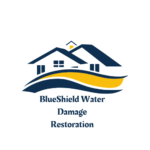Water damage as a result of plumbing leakages will result in extensive destruction to your home, high repair costs, and structural damage, besides being hazardous to health. From slow drips unnoticed by homeowners to sudden bursts, plumbing leaks are commonplace. However, being proactive will allow you to minimize water damage risks much to your advantage. In this article, we will discuss how one can prevent water damage from plumbing leaks with practical tips and professional solutions.
Understanding Plumbing Leaks
1. Basic Causes of Plumbing Leaks
Plumbing leaks often result from various factors, including:
- Aging Pipes: Over time, pipes can corrode or weaken, causing a leak
- Loose Connections: Improperly fitted pipes or worn-out seals can allow water to seep through
- High Water Pressure: High pressure may cause strain on pipes and joints, resulting in leaks
- Clogs: Blockages within the system cause a pressure build-up force enough water to find the weak spots to leak out from.
- Low Temperature Freeze: In colder regions, water inside pipes freezes and expands to cause cracking or bursting of the pipe.
2. Types of Leaks in Plumbing
- Silent Leaks: These are non-water-emitting ones that leak in hidden spaces, hence almost impossible to notice, like those leaking inside the walls or under the floor.
- Sudden Leaks: Those coming from sudden pipe bursts or a faulty joint
3. Signs of Plumbing Leaks
- Suddenly increased bills for water.
- Stains, discoloration or peeling paint on walls and ceilings.
- Warpage or damp patches on floor
- Moist smells, which define the presence of mold and mildew
Maintenance Practices to Avoid Leaks
Routine maintenance will also ensure that your plumbing system remains healthy. Some steps to maintain it in good health are as follows:
- Inspect Exposed Pipes: Check moisture, rust, and cracking
- Tighten Connections: Leaks may occur over time from loose fittings
- Replace Worn Parts: Check faucets and washers for wear and replace them immediately.
- Clear Drains Regularly: Remove debris from drains to prevent clogs and pressure build-up.
Routine maintenance will catch minor issues before they become serious problems.
Upgrade Plumbing Systems
1. Replace Aging Pipes:
Older pipes made of galvanized steel have a higher rate of leakage. Modern options such as PEX, copper will prevent problems and provide better durability to your plumbing system.
2. Install Pressure Regulators:
A pressure regulator ensures that your water pressure is as safe as possible and prevents the pipes from getting damaged. It is a simple, yet effective tool to protect your plumbing.
3. Smart Leak Detectors:
Understand smart devices that alert you to any leaks as soon as possible. These detectors can track the water flow and will inform your smartphone of all the detected leaks to get problems recognized early.
Insulating Pipes to Prevent Freezing
Frozen pipes are a primary concern in colder climates. Insulate any exposed pipes in the basement or attic of your home to help prevent freezing. Maintaining a consistent temperature indoors during the winter will also help protect your plumbing system.
1. Monitoring Hidden Areas
Leaks in inaccessible parts of your home may not be noticed until damage is already done. Watch for:
- Appliance Servicing: Look at hoses and seals of washing machines, dishwashers, and water heaters.
- Cabinets and Under-Sink Areas: Check for moisture or discoloration.
- Basements and Crawlspace: These spaces are typically hidden from view, so leaks can be hid and are therefore frequently overlooked unless checked regularly.
2. Prompt Response to Leaks
Leaky minor ones can result in substantial damage over time. If you discover a leak:
- Turn off Water Supply: This prevents further damage.
- Temporary Lepage Stoppage: Use pipe tape or clamps to temporarily stop the leak.
- Seek Professional Help: Call a plumber to fix it for good.
Prompt action can save you from extensive repairs and costs.
3. Preventative Plumbing Practices
Adopt these practices to reduce the likelihood of leaks:
- Avoid Harsh Chemicals: Chemical drain cleaners can corrode pipes. Use natural methods to clear blockages instead.
- Educate Your Family: Teach everyone proper plumbing use, such as avoiding flushing non-degradable items.
- Use Drain Screens: Prevent debris from clogging pipes.
- Install Water Softeners: In regions with hard water, a softener can prevent scale buildup which can damage your pipes.
The Role of Professional Maintenance
Professional plumbing inspections allow for the detection of existing problems before they arise. Licensed plumbers are equipped to identify leaks in hard-to-reach locations through the use of thermal imaging and moisture meters. Regular yearly checks ensure your plumbing system is in good working order.
Emergency Preparedness
Knowing how to react in a plumbing emergency can help prevent major water damage:
- Find the Main Water Shut-off: Make sure you and your family know how to close the shut-off.
- Prepare an Emergency Kit: Put tools like pipe clamps, Teflon tape, and a wrench in there.
- Have a Trusted Plumber on Speed Dial: Quick access to professional help will be essential in emergencies.
How BlueShield Water Damage Restoration Can Help
Despite your best efforts, plumbing leaks can still occur. In such cases, BlueShield Water Damage Restoration offers comprehensive services to address water damage efficiently. From repairing leaks to restoring affected areas, our team ensures your home remains safe and secure. Our expertise in leak detection, pipe repair, and water damage restoration can save you time, money, and stress.
Conclusion:
Preventing water damage from a plumbing leak requires proactive measures, regular maintenance, and the willingness to address issues as they come up. The tips in the article above will go a long way toward keeping your home safe from costly repairs, which oftentimes compromise the structural integrity of your house.
BlueShield Water Damage Restoration: Professional help for all your plumbing and ensuring that your home remains dry and safe. Contact us today to learn more on how we can help you prevent and address water damage.
